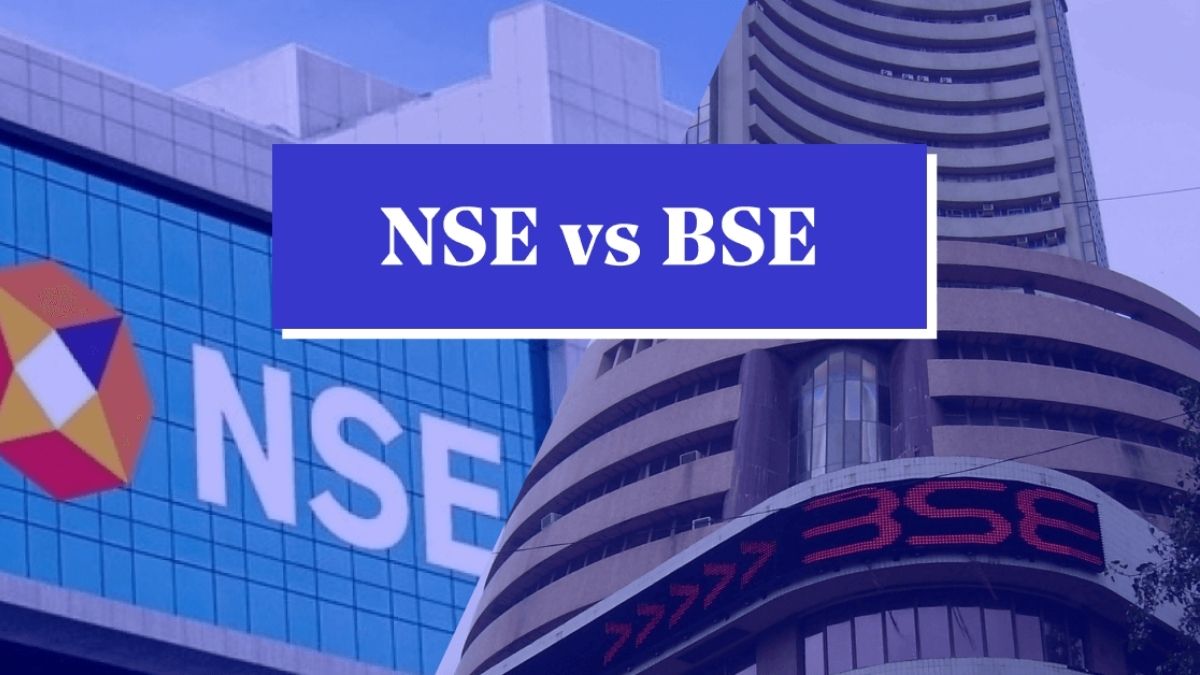NSE Vs BSE: Which is better for Investment in Stocks
The National Stock Exchange (NSE) and the Bombay Stock Exchange (BSE) are the two primary stock exchanges in India. Together, they form the backbone of India’s stock market and provide a platform for trading a wide range of financial instruments. However, these two exchanges have distinct characteristics and histories that set them apart.
In this article, we will dive into the key differences between NSE vs BSE to get a better understanding of their roles in the Indian economy.
Also Read: How to Earn Rs.500 Instantly? Your Guide to Fast Money
History and Establishment
The Bombay Stock Exchange (BSE) is the older of the two, dating back to 1875 when it was formally established as the Native Share and Stock Brokers’ Association. BSE is often referred to as the “Dalal Street” and is located in Mumbai, the financial capital of India. It was the first stock exchange in Asia to obtain permanent recognition from the Indian government under the Securities Contracts Regulation Act of 1956.
The National Stock Exchange (NSE), on the other hand, is the newer of the two, having been established in 1992. It was founded as a response to the need for a modern electronic exchange in India. NSE is headquartered in Mumbai as well and is often associated with advanced technology and automation.
Key Differences between National Stock Exchange (NSE) & Bombay Stock Exchange (BSE)
| Aspect | NSE (National Stock Exchange) | BSE (Bombay Stock Exchange) |
| Establishment Year | 1992 | 1875 |
| Trading Mechanism | Fully electronic (NEAT) | Mixed – electronic and open-outcry (BOLT) |
| Trading Hours | 9:15 AM to 3:30 PM, Monday to Friday | 9:15 AM to 3:30 PM, Monday to Friday |
| Prominent Market Index | Nifty 50 | Sensex |
| Regulatory Oversight | SEBI (Securities and Exchange Board of India) | SEBI, Ministry of Finance, and RBI (Reserve Bank of India) |
| Settlement Process | T+2 (Transaction date + 2 business days) | T+2 (Transaction date + 2 business days) |
| Market Share | Significant market share, particularly among retail investors | Remains a significant player in the Indian stock market, with a historical legacy |
| Notable Features | Known for advanced electronic trading, higher retail participation | Offers a blend of traditional and electronic trading, iconic Sensex index |
| Key Trading Segments | Equities, derivatives, and debt securities | Equities, derivatives, debt securities, commodities |
| Primary Index | Nifty 50 (NSE) | Sensex (BSE) |
| Historical Significance | Relatively newer exchange established in response to the need for modern electronic trading | One of Asia’s oldest stock exchanges with a rich history |
Conclusion
In summary, while both NSE vs BSE serve as integral components of India’s financial markets, they exhibit significant differences in terms of their history, trading mechanisms, and market dynamics. NSE’s electronic trading system and Nifty 50 index have contributed to its prominence, particularly among retail investors, while BSE, with its historical significance and hybrid trading methods, continues to play a vital role in the Indian stock market. Investors and traders often choose between the two based on their specific preferences, investment objectives, and trading strategies.



